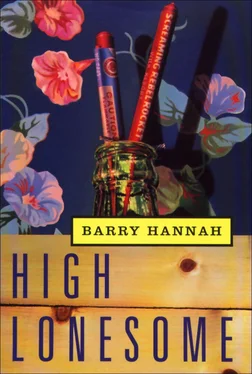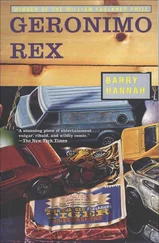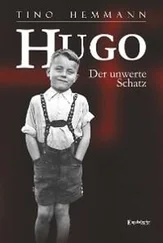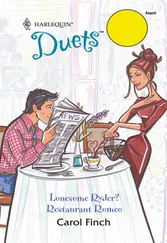But something had gone wrong. My father had put me down in a place they were hunting toward. Their guns were coming my way. Between me and them I knew there were several coveys of quail to ground, frozen in front of the dogs, two setters and a pointer, who were now all stiffening into the point. My uncle came up first. This was my namesake, Peter Howard, married but childless at forty-five. I was not much concerned. I’d seen, on another hunt, the black men who stalked for my uncle flatten to the ground during the shooting, it was no big thing. In fact I was excited to be receiving fire, real gunfire, behind my tree. We had played this against Germans and Japanese back home in my neighborhood. But now I would be a veteran. Nobody could touch me at war.
My uncle came up alone on his horse while the others were still hacking through the overhang behind him. He was quite a picture. On a big red horse, he wore a yellow plaid corduroy vest with watch chain across, over a blue broadcloth shirt. On his bald head was a smoky brown fedora. He propped up an engraved 16-gauge double in his left hand and bridled with his right, caressing the horse with his thighs, over polo boots a high-gloss tan. An unlit pipe was fixed between his teeth. There was no doubting the man had a sort of savage grace, though I noticed later in the decade remaining to his life that he could also look, with his ears out, a bit common, like a Russian in the gate of the last Cold War mob; thick in the shoulders and stocky with a belligerence like Kruschev’s. Maybe peasant nobility is what they were, my people. Uncle Peter Howard watched the dogs with a pleasant smile now, with the sun on his face at midmorning. I had a long vision of him. He seemed, there on the horse, patient and generous with his time and his lands, waiting to flush the quail for his brothers. I saw him as a permanent idea, always handy to reverie: the man who could do things.
In the face he looked much like — I found out later — the criminal writer Jean Genet, merry and Byzantine in the darks of his eyes. Shorter and stockier than the others and bald, like none of them, he loved to gamble. When he was dead I discovered that he also was a killer and not a valiant one. Of the brothers he was the most successful and the darkest. The distinct rings under my eyes in middle age came directly from him, and God knows too my religious acquaintance with whiskey.
The others, together, came up on their horses, ready at the gun. They were a handsome clan. I was happy to see them approach this way, champion enemy cavalry, gun barrels toward me, a vantage not many children in their protected childhoods would be privileged to have. I knew I was watching something rare, seen as God saw it, and I was warm in my ears, almost flushed. My uncle Peter tossed a stick over into a stalk pile and the quail came out with that fearsome helicopter bluttering always bigger than you are prepared for. The guns tore the air. You could see sound waves and feathers in a space of dense blue-gray smoke. I’d got behind my big tree. The shot ripped through all the leaves around. This I adored.
Then I stepped out into the clearing, walked toward the horses, and said hello.
My uncle Peter saw me first, and he blanched in reaction to my presence in the shooting zone. He nearly fell from his horse, like a man visited by a spirit-ghoul. He waddled over on his glossy boots and knelt in front of me, holding my shoulders.
“Boy? Boy? Where’d you come from? You were there? ”
“Pete, son?” called my father, climbing down mystified. “Why didn’t you call out? You could’ve, we could’ve. …”
My uncle hugged me to him urgently, but I couldn’t see the great concern. The tree I was behind was wide and thick; I was a hunter, not a fool. But my uncle was badly shaken, and he began taking it out on my father. Maybe he was trembling, I guess now, from having almost shot yet another person.
“Couldn’t you keep up with where your own boy was?”
“I couldn’t know we’d hunt this far. I’ve seen you lost yourself out here.”
An older cousin of mine had had his calf partially blown away in a hunting accident years ago, out squirrel hunting with his brother. Even the hint of danger would bring their wives to their throats. Also, I personally had had a rough time near death, though I hadn’t counted up. My brother had nearly cut my head off with a sling blade when I walked up behind as a toddler, but a scar on the chin was all I had. A car had run me down as I crossed the street in first grade. Teaching me to swim the old way, my pa had watched me drown, almost, in the ocean off a pier he’d thrown me.
But this skit I had planned, it was no trouble. I wanted them to fire my way, and it had been a satisfactory experience, being in the zone of fire.
I felt for my father, who was I suppose a good enough man. But he was a bumbler, an infant at a number of tasks, although he was a stellar salesman. He had no grace, even though nicely dressed and handsome, black hair straight back, with always a good car and a far traveler in it around the United States, Mexico, and Canada. His real profession was a lifetime courting in awe of the North American continent — its people, its birds, animals, and fish. I’ve never met such a humble pilgrim of his own country as my father, who had the reverence of a Whitman and Sandburg together without having read either of the gentlemen. But a father’s humility did not cut much ice with this son, although I enjoyed all the trips with him and Mother.
From that day on my uncle took more regard of me. He took me up, really, as his own, and it annoyed my turkey-throated aunt when I visited, which was often. We lived only an hour and a half away, and my uncle might call me up just to hear a baseball game on the radio with him as he drove his truck around the plantation one afternoon. On this vast place were all his skills and loves, and they all made money: a creosote post factory, turkey and chicken houses, cattle, a Big Dutchman farm machinery dealership; his black help in their gray weathered wrinkled houses; his lakes full of bass, crappie, bluegills, catfish, ducks and geese, where happy customer/friends from about the county were let fish and sport, in the spirit of constant merry obligation each to each that runs the rural South. Also there was a bevy of kin forever swarming toward the goodies, till you felt almost endlessly redundant in ugly distant cousins. Uncle Peter had a scratchy well-deep voice in which he offered free advice to almost everybody except his wife. And he would demand a hug with it and be on you with those black grinding whiskered cheeks before you could grab the truck door. He was big and clumsy with love, and over all a bit imperial; short like Napoleon, he did a hell of a lot of just … surveying. Stopping the truck and eyeballing what he owned as if it were a new army at rest across the way now, then with just the flick of his hand he’d … turn up the radio for the St. Louis Cardinals, the South’s team then because the only broadcast around. I loved his high chesty grunts when one of his favorites would homer. He’d grip the steering wheel and howl in reverential delight: “Musial! Stan the Man!” I was no fan, a baseball dolt, but I got into it with my uncle.
Had I known the whole truth of where he had come from, I would have been even more impressed by his height and width of plenty. I mean not only from the degrading grunting Depression, beneath broke, but before that to what must have been the most evil hangover there is, in a jail cell with no nightmare but the actual murder of a human being in your mind, the marks of the chair legs he ground in your face all over you, and the crashing truth of your sorriness in gambling and drink so loud in your head they might be practicing the trapdoor for the noose over and over right outside the door. That night. From there. Before the family got to the jurors. Before the circuit judge showed up to agree that the victim was an unknown quantity from out of town. Before they convicted the victim of not being from here.
Читать дальше












